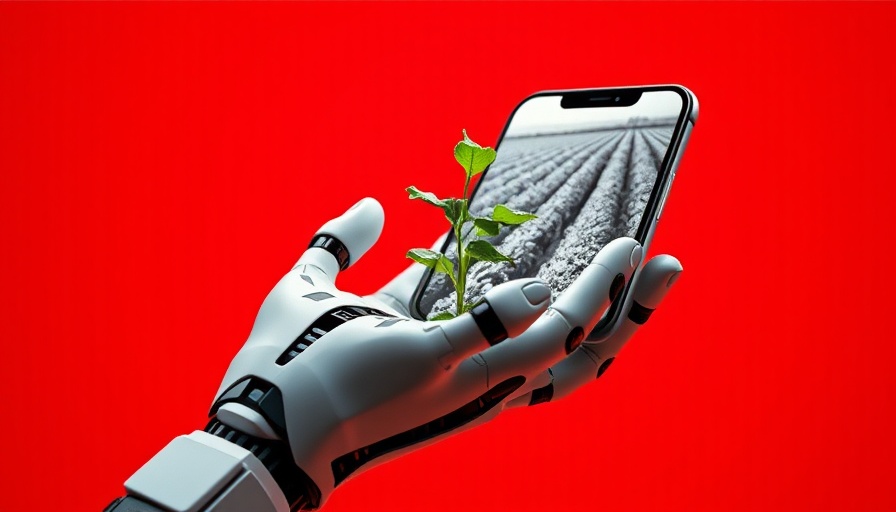
A New Era of Farming: Embracing Robotics
In the lush expanses of Egypt's Nile Delta, a revolution in agriculture is quietly yet effectively reshaping traditional practices. AgriCan's robots, engineered through the inventive mind of Salem Ghanam and his team, are capitalizing on the critical need for precision in pesticide application. After observing the dire consequences of pesticide overuse, Ghanam’s vision turned into a reality: a system that minimizes chemical use while maximizing crop health.
Addressing the Pesticide Dilemma
Understanding the ecological and health implications of pesticide usage is crucial. Every year, between 10% to 28% of crops are lost to pests, necessitating heavy reliance on pesticides, which can lead to devastating health issues. The World Health Organization highlights the connection between pesticide exposure and severe health risks, particularly for farmers in low-income regions. This cautious approach is embodied in AgriCan's innovative technology, ensuring chemicals are applied with unmatched precision, reducing the likelihood of harm to workers and the environment alike.
Barriers to Adoption: Cultural and Infrastructure Challenges
Despite AgriCan's promise, the path to widespread adoption is fraught with obstacles. Most Egyptian farmers remain tethered to traditional practices, largely due to limited technological literacy and financial constraints. As UN agricultural expert Mohammed Ali Faheem noted, without robust governmental support and investment in agritech, the transition to more sustainable practices remains slow. This hesitation illustrates a broader trend in the region; while some Gulf nations leap ahead in agricultural technology, many African and Middle Eastern countries lag behind.
Imagining the Future of Agriculture in Egypt
Looking forward, the integration of AI and IoT in farming could redefine agricultural productivity across Egypt. By easing labor demands and increasing crop yield, robotic systems like AgriCan’s offer a compelling model for farmers. Yet, the question remains: will farmers embrace this shift? Cultivating a future where technology and tradition coexist harmoniously might hold the key to achieving sustainable agricultural practices.
In conclusion, the story of AgriCan stands as both an inspiration and a challenge. The journey towards smarter farming necessitates not only advanced technology but also a shift in the agricultural mindset. As we stand on the brink of a new era in farming, how can we facilitate this transformation?
 Add Row
Add Row  Add
Add 




Write A Comment